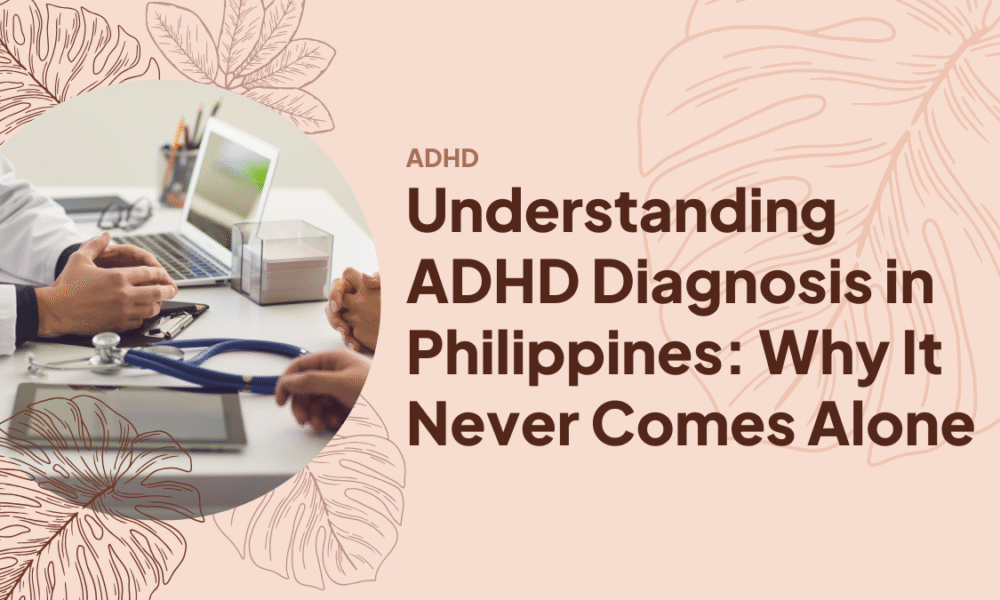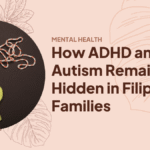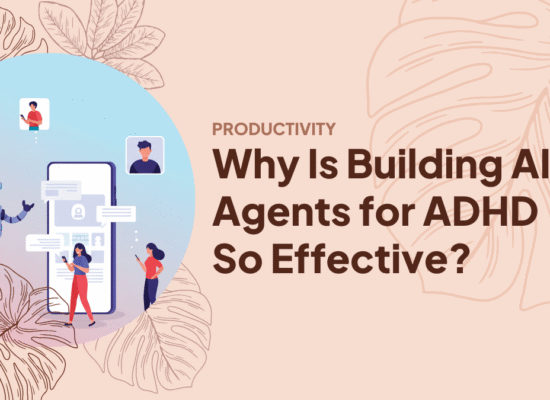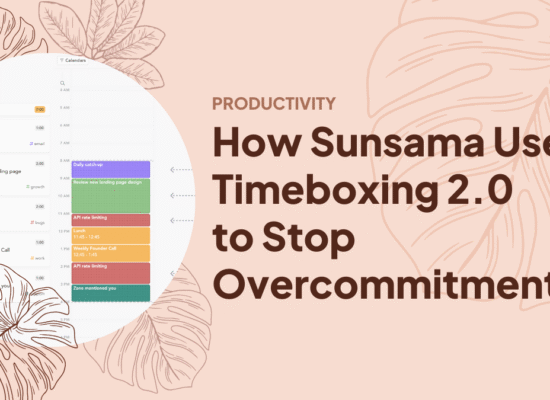Table of Contents
Four million Filipinos live with ADHD daily, but seeking an ADHD diagnosis in Philippines reveals a complex truth: ADHD rarely travels alone.
This pattern emerges repeatedly in Filipino adults pursuing diagnosis and treatment. The hyperactivity, inattention, and impulsivity that define ADHD represent just the visible surface of a much more intricate neurological reality that affects daily functioning and quality of life.
Research reveals that 80% of adults with ADHD experience at least one additional psychiatric condition. For most Filipino adults seeking ADHD diagnosis in Philippines, understanding their complete mental health picture requires looking beyond the primary diagnosis to address interconnected challenges.
The Anxiety Connection
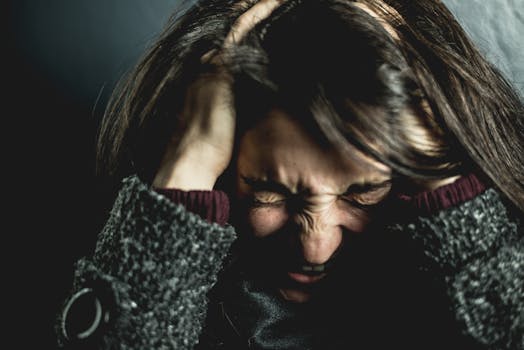
Anxiety disorders emerge as the most frequent companion to ADHD in adults, particularly affecting Filipino women with ADHD who face unique cultural and social pressures.
Nearly half of all adults with ADHD experience significant anxiety symptoms. This connection makes sense when we understand how ADHD affects daily functioning. The constant struggle with organization, time management, and attention regulation creates a persistent undercurrent of stress that can lead to sensory overload, where everyday environments become overwhelming.
Filipino adults face additional cultural pressures that can intensify this anxiety. Family expectations, workplace demands, and social obligations create multiple performance contexts where ADHD symptoms become sources of worry and self-doubt.
The combination proves particularly challenging because anxiety can worsen ADHD symptoms while ADHD symptoms fuel more anxiety. We see this cycle in adults who avoid tasks due to anxiety, then experience increased stress from mounting responsibilities.
Mood Disorders and Executive Dysfunction
Depression frequently coexists with ADHD in Filipino adults, creating additional barriers to effective daily management.
The relationship between these conditions runs deeper than simple cause and effect. ADHD affects the brain’s executive functioning systems, which include emotional regulation. Adults with ADHD often struggle to overcome executive dysfunction, experiencing emotions more intensely and having difficulty managing emotional responses.
Years of struggling with undiagnosed ADHD symptoms can lead to feelings of inadequacy, frustration, and hopelessness. Many Filipino adults describe a sense of being “different” or “broken” before receiving proper ADHD diagnosis in Philippines and understanding their neurological differences.
The cultural context adds another layer of complexity. Cultural stigma around mental health in Filipino families often means these struggles remain hidden, preventing access to support and treatment resources.
Substance Use as Coping Mechanism
Adults with ADHD show higher rates of substance use disorders than the general population, often beginning as attempts at self-medication.
This pattern often starts innocently. Some adults discover that caffeine, nicotine, or alcohol temporarily improves their focus or reduces their hyperactivity. Others use substances to manage the anxiety and mood symptoms that accompany their ADHD.
The stimulating effects of certain substances can provide temporary relief from ADHD symptoms, creating a dangerous cycle of dependence. We understand this as an attempt to regulate brain chemistry that feels consistently out of balance.
Sleep Disorders and Daily Functioning

Sleep problems affect the majority of adults with ADHD, creating cascading effects on all aspects of daily life.
The relationship works in both directions. ADHD symptoms can make it difficult to wind down at night, leading to delayed sleep onset. Poor sleep then worsens ADHD symptoms the following day, creating a cycle that’s difficult to break without proper intervention.
Many Filipino adults report lying awake with racing thoughts, unable to quiet their minds for sleep. Others experience restless sleep or frequent waking, never feeling fully rested despite spending adequate time in bed.
Sleep disorders compound all other ADHD-related difficulties. Concentration becomes even more challenging, emotional regulation suffers, and the risk for mood and anxiety problems increases significantly.
Learning and Processing Differences
Adults pursuing ADHD diagnosis in Philippines frequently discover coexisting learning differences that went unrecognized for years.
These might include difficulties with reading comprehension, mathematical processing, or written expression. In many cases, these learning differences went unrecognized during childhood, leading to years of academic struggle without appropriate support or understanding.
Filipino adults often describe feeling “stupid” or “lazy” before understanding that their brains simply process information differently. This recognition can be both relieving and frustrating, as it explains past difficulties while highlighting missed opportunities for support.

Cultural Complexity in Diagnosis
Understanding ADHD comorbidities in Filipino adults requires acknowledging cultural factors that influence both symptom expression and help-seeking behavior.
Traditional Filipino values emphasize family harmony and avoiding shame or embarrassment. Mental health struggles can be seen as family problems rather than individual medical conditions requiring treatment. This cultural context affects how symptoms are interpreted and addressed.
Adults might minimize their struggles or attribute them to personal failings rather than recognizing them as treatable medical conditions. For ADHD PWD Philippines recognition, this cultural understanding becomes crucial for effective treatment approaches.
Recognition and Comprehensive Treatment
The complexity of ADHD in Filipino adults demands comprehensive assessment and treatment approaches that address multiple interconnected conditions.
Single-symptom focus misses the interconnected nature of these conditions. Effective treatment addresses not just ADHD symptoms but also the anxiety, mood, sleep, and other difficulties that commonly accompany the primary diagnosis.
Working with an adult ADHD coach can provide valuable support in developing practical strategies for daily management. Additionally, using tools specifically designed for ADHD brains, such as Sunsama for ADHD brains, can help create structure and reduce overwhelm in daily planning and task management.
We see the best outcomes when adults understand their complete neurological profile rather than focusing solely on ADHD symptoms. This comprehensive understanding enables more targeted interventions and realistic expectations for improvement.
Recognition represents the first step toward effective management. Filipino adults experiencing persistent difficulties with attention, mood, anxiety, or sleep deserve thorough evaluation that considers the full spectrum of possible contributing factors.
Key Takeaways
- 80% of adults with ADHD have at least one additional psychiatric condition requiring comprehensive treatment approaches.
- Cultural factors in Filipino families can delay ADHD diagnosis and treatment, making awareness crucial for early intervention.
- Effective ADHD management requires addressing anxiety, mood, sleep, and executive function challenges together rather than separately.
Ready to manage your ADHD symptoms more effectively?
Frequently Asked Questions
How common is ADHD diagnosis in Philippines among adults?
Approximately 4 million Filipinos live with ADHD, though many adults remain undiagnosed due to limited awareness and cultural stigma.
What should I expect during an ADHD evaluation in the Philippines?
A comprehensive ADHD diagnosis includes assessment of symptoms, medical history, and screening for common comorbidities like anxiety and depression.
Can Filipino women with ADHD face different challenges than men?
Yes, Filipino women with ADHD often experience unique cultural pressures and may have symptoms that present differently, leading to later diagnosis.
Maria is an accomplished digital marketing professional, specializing in content marketing and SEO. She's a neurodivergent who strives to raise awareness, and overcome the stigma that envelopes around mental health.
